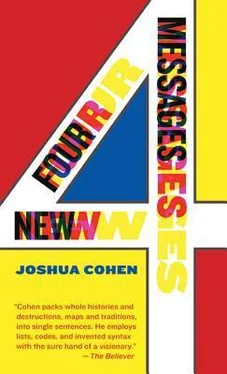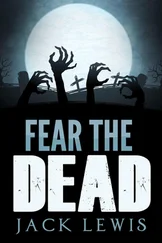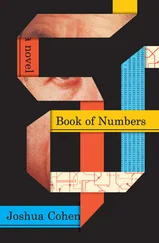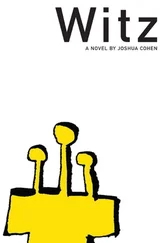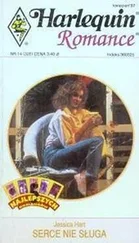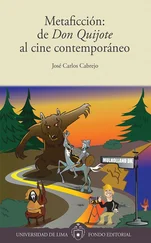It’d been too soft a bed, it’d gone too softly on him, he smoothed it, smoothed the pillow too, he’d never had sex there, he’d stopped even having dreams.
He called his parents to say he was leaving — sure as he was that his mother wasn’t home — left a message:
I’ll be back soon, Dad, nothing special to eat, just make sure to make the sofa up downstairs.
He thought about just sending an email, then thought the better of it: he’d email them later, as reminder, forty-eight hours or so into his crosscountry drive — on a heartland signal wavering like grain in the wind, wavering then true, fixed and true.
What would he say then? what would be the Subject?
The man who invented email — sending messages from one computer to another — never revealed what was said in that first email ever sent. Unlike with the innovators of the telephone, whose testimony we have — unlike with the first man to swagger pithy on the moon.
What did that first email say? why did the inventor never tell us? Probably because that message was obscene. Probably said, “Sveta, lover, I want to fuck your face off!” or, “Daddy, why’d you touch me there?”
This was Illinois.
He’d been up all night so late that it was two nights — so this was Illinois. And had finally slept by dawn and woke by noon, undressed at his computer.
As he stretched a yawn his computer woke too, its screen confirming: he’d bought a ticket for an international flight departing in six hours.
Such are the problems you get giddily into when you have access, the situations brought about by life’s late convenience — how convenient it is to be connected, modern.
His parents’ credit card.
He checked out of the motel — as if his purchase on bliss couldn’t be roomed anymore — found his rental, that cumbrous truck packed fully, got behind the wheel, and drove toward Chicago — he was on the highway, he’d clung to the outskirts.
He left the truck in extended parking — one lot the same as another, or it’s only that he’s misplaced the number, his section, his row — there unburdening himself of his dirty bedding and dirty clothes, the corrugated boxes of incorrigible books, loose Registrar slips and Bursar receipts, the last days of being a student condoms optimistically purchased, bilingual dictionaries overdue, photographs of parents but none of friends, not that he wasn’t into photography but that he had no friends. He had a wallet on his person, that abused credit card.
The check-in clerk asked, No luggage?
He said, No thank you, but the clerk didn’t laugh, a mousy nondescript whose only pleasure was making hassle.
OK, description: her eyes were small and her vest was on too snug (he couldn’t look at other women).
Then he explained, he had a girlfriend where he was going who had everything already: clean boxerbriefs his size, toothbrush and paste, multiflavored flosses — all he needed was his computer, computerbag on his shoulder.
Imagine that truck, then, the back of it.
Open it, scroll up the rear door and what you’ll find is his room, wholly intact, packaged just as it was: carpet sample put down first, then the shelves surfeited with shelfware, the two lamps on the two endtables below the two speakers installed one each to the high rear corners, the interstate miles of stereo wire, even the empty bottles he wanted to keep as proof, the winebottles, the beerbottles — proof of what? 80 proof, 90 proof — he’d hung a couple of frames on the truckwalls for art: one abstract, one not, a print of a celebrated portrait but he always forget of whom (though “a muse,” she had to have been).
Still, he couldn’t have slept there, couldn’t sleep even in the bedroom’s original setting. Not that he’d neglected it, just that it wasn’t his. Ms. Zimmer’s bed, her spare, sitting back on the other coast in an otherwise stripped room, waiting for her sergeant son’s disposal (after court, after a doubleshift policing Venice) — it’d been lying around her basement for years before she’d struggled it upstairs. She’d rented him the apartment, offering the bed only to rob him on utilities. He’d stolen the linens in revenge but then remembered they were his, he’d bought them, white on white. The mattress still pristine, the frame as unsturdy as it was the day he’d put it together again — decrepit, a pall plot missing screws.
Now his last communication, after passing through Security — not that phone message he’d left on his parents’ machine, but the email he sent from this airport halfway across, the tarmac tailgating the plains.
Crosslegged by the gate, he wrote, he typed:
Dear Mom, I’ve gone on assignment. Reserve me space in the spring issue next year.
Dear Dad, Hope your disability case goes well with the Port Authority. I can’t think of a second sentence for you.
Sincerely, David.
He pressed Send.
Your message has been sent.
His message has been sent.
XXX
_________________
He’d wanted a different life,a new life. Which should have been as easy as buying something. As simple as opening a new account. He’d wanted to make a new name for himself and the new password that would access his secrets would be (“preferably some combination of letters and digits”) — no, no passwords. And no different names — no name at all.
Whole afternoons used to be as quiet as that Illinoisan motelroom was by dawn — once upon a time (childhood) whole weeks and even months passed by that satisfied, that ecstatically calmly, drugged on the horizonlessness of time, on his being alone and lazy and too young to know any better, before the days became broken up by access, noised by opportune technologies.
He’d been rockabyeing in a rockingchair, then on the bed, thickly rumpled. On that motel bed big and foreboding, as large as the room and as hard as the floor, a lump of carpet topped with a pillow as sharpcornered as a box. Through the window he saw the parkinglot, the truck, a smudge of moon, a muggy night, the window fogging. The bed was soundlessly elemental, like a boulder or tree grown up from the floor, from the fields, the soildark asphalt. The television could be turned on but no higher or lower than no volume on Channel 3—the remote control was missing.
He plucked an Apple — his. It had been a gift from his parents — for his birthday, for their having oblivioned his birthday — congratulating him on having been graduated from the age of being gifted. Whenever his parents gave him a gift it was so rarely specified what occasion it was for, often one gift would have to suffice for an entire year and then in one month, spring’s, there would be this random, guilty superfluity of presents.
It was insufferable, their worming. His mother had deadlines and the internet (where she’d met her new friend, whose Manhattan condo she’d been staying at most weekends), his father had not having his mother and a phone that followed him everywhere (though only his addicts ever called and he didn’t get out of the fridge much) — this was their remorse. His computer. Peel the screen away from the keys and all the letters glistened. It could spell cultivar and calyx and stamen, it could spell exocarp and endocarp and mesocarp and pome —it could spell spelling and apple, a-p-p-l-e, apple —all while circumscribing the cryptogeography of Eden, vegetarian recipes, porn.
The white box whirred as he began to waste — life the same as battery life, he couldn’t be bothered to plug anything in, he was tired but wouldn’t yet crash.
He had to sap the stress of driving — enough driving the trees and the roads, the rubbaged rumbling shoulders — this screen less boring than a windshield.
Читать дальше
